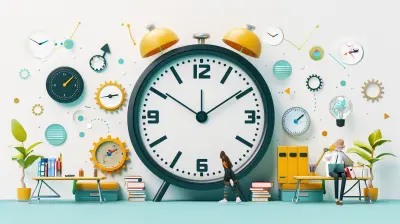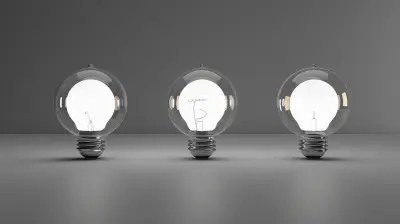22 November 2025
Let’s be honest—sleep is one of those things we all know we need, but for some reason, it’s always the first to get cut when life gets busy. Cramming for exams, pulling all-nighters to meet deadlines, or staying up late to binge-watch a favorite series—been there, done that. But here’s the deal: skipping sleep doesn’t just make you groggy; it seriously messes with your memory. Yep, your brain needs sleep like a phone needs charging. Without it, things start falling apart—including your ability to remember and learn.
So, let’s dive deep into why sleep isn’t just a luxury—it’s a necessity for memory retention and overall brain health. We’ll explore science-backed reasons, relatable examples, and a few practical tips to help you sleep smarter (no pun intended).
Why Do We Sleep Anyway?
Before we get into how sleep affects memory, let’s start with the basics—why do we even sleep? It’s not just about resting your body. Sleep is actually a pretty active process for your brain. While you're catching ZZZs, your brain is hard at work—cleaning up, organizing, and filing away memories like a diligent office assistant.Think of it this way: during the day, your brain is like a sponge soaking up new information. But sponges can only soak up so much before they start dripping. That’s where sleep comes in. It wrings out the sponge, keeping things in order and making space for new data.
The Science of Sleep: A Quick Refresher
So, what happens when you sleep? Well, sleep isn’t just one big snooze. It comes in cycles, and each cycle is made up of stages:- Stage 1 (Light Sleep): You’re drifting in and out. Your body relaxes, but you can wake up easily.
- Stage 2: Your heart rate slows, your body temp drops, and your brain starts to do some light housekeeping.
- Stage 3 (Deep Sleep): This is where serious healing and restoration happen—both physical and mental.
- REM Sleep (Rapid Eye Movement): This is the dream zone. Your brain becomes super active, and this stage plays a huge role in memory processing.
Each full sleep cycle lasts about 90 minutes, and we go through several of them each night. Missing out on any of these? Your brain doesn’t get the full benefits of the "mental cleaning crew."
Sleep and Memory: What’s the Connection?
Alright, let’s talk memory. Your brain deals with three main types of memory:- Sensory Memory: Super short-term stuff—like the last thing you saw or heard.
- Short-Term (Working) Memory: Info you hold temporarily to solve a problem or do a task.
- Long-Term Memory: Stored knowledge—like facts, experiences, and skills.
Sleep helps move memories from short-term to long-term storage. Think of your brain like a messy desktop. Throughout the day, you open tabs, download files, and work on documents. Sleep is when everything gets saved, organized into folders, and the clutter is cleaned up.
How Sleep Enhances Memory Retention
1. Solidifying Information
Let's say you're studying for a big exam. You spend hours reading textbooks and taking notes. But if you don't sleep afterward, your brain skips the "save" step. Sleep—especially deep and REM stages—is when the brain transfers new information from your short-term memory (RAM) into long-term memory (the hard drive).It’s like writing notes on a whiteboard vs. saving them on your computer. Without sleep, those notes get wiped clean when you wake up.
2. Strengthening Neural Connections
When you’re asleep, your brain is like a gardener trimming the hedges and watering the plants. It strengthens useful neural connections and prunes away the irrelevant ones. This process helps you focus better, think clearly, and remember things more efficiently.So yes, those “Aha!” moments? They might just be the result of a good night’s sleep.
3. Organizing and Integrating Knowledge
Ever wake up with a solution to a problem you couldn’t figure out the night before? That’s thanks to sleep. During REM, your brain pieces together different bits of information and finds patterns—almost like connecting puzzle pieces.This is crucial for tasks that involve creativity, critical thinking, and problem-solving. Sleep helps your brain not just store, but also understand and apply what you’ve learned.
What Happens When You Don’t Sleep Enough?
Now that we know how magical sleep can be, what happens if you skimp on it?🧠 Memory Lapses – Forget where you put your keys? Can’t remember what you just read? Sleep deprivation weakens the hippocampus, the part of the brain that forms new memories.
☁️ Brain Fog – Without enough sleep, your brain feels like it’s wrapped in cotton. Concentration dips, decision-making falters, and learning becomes harder.
⏱️ Slower Reaction Time – Whether you’re driving or taking a test, a tired brain reacts more slowly. That’s not just inconvenient—it can be dangerous.
💤 Lower Academic Performance – Studies have shown that students who don’t get enough sleep consistently perform worse on tests and assignments. Cramming might help short-term, but it backfires in the long run.
How Much Sleep Do You Actually Need?
Great question! The magic number varies by age, but here’s a general guide:| Age Group | Recommended Sleep |
|-----------|-------------------|
| Teens (14–17) | 8–10 hours/night |
| Young Adults (18–25) | 7–9 hours/night |
| Adults (26–64) | 7–9 hours/night |
If you’re barely getting five hours and running on coffee and vibes, it’s time to rethink your schedule.
Can You “Catch Up” on Sleep?
The short answer? Not really.You might feel better after sleeping in on the weekend, but it doesn’t fully undo the damage of a sleep-deprived week. Chronic sleep debt messes with your brain in ways that can’t be erased with one long nap.
A better strategy? Consistent, high-quality sleep every night.
Tips to Boost Sleep and Boost Memory
Alright, so we’ve made our case—sleep is critical for memory and brain function. But how do you actually get better sleep? Here are some simple, student-and-work-life-friendly tips:1. Stick to a Schedule
Try to go to bed and wake up at the same time every day. Yes, even on weekends! It helps regulate your body's internal clock.2. Power Down Before Bed
The blue light from screens messes with melatonin, the sleep hormone. Aim to unplug at least 30 minutes before hitting the hay.3. Keep Your Room Cool and Dark
Your brain associates darkness with sleep. A cool, quiet, and dark room is the ultimate sleep zone.4. Avoid Caffeine Late in the Day
Caffeine can stay in your system for hours. Avoid coffee, tea, and energy drinks after mid-afternoon if you want a restful sleep.5. Don’t Work in Bed
Your bed is for sleep (and maybe reading). If you turn it into a study zone, your brain won’t know when it’s time to wind down.6. Try Relaxation Techniques
Simple practices like deep breathing, meditation, or a warm bath can calm your nervous system and ease you into sleep mode.Sleep and Students: A Special Shoutout
Students, this one’s for you. We get it—life gets hectic. Between lectures, assignments, and a social life, sleep often takes the hit. But when it comes to acing exams or nailing a presentation, pulling an all-nighter does more harm than good.Need proof? Studies show that students who sleep well remember information better, solve problems faster, and score higher on exams.
So, the next time you're reaching for a fifth cup of coffee to burn the midnight oil, maybe pause and ask: Would I be better off just going to bed?
Conclusion: Sleep Is the Secret Weapon for Memory
Here’s the bottom line: sleep isn’t just a nice-to-have—it’s a must. It plays an essential role in helping us learn, remember, and make sense of the world around us. Whether you’re a student, a working professional, or just someone trying to remember where they left their wallet, getting good sleep is one of the smartest things you can do.So go ahead, give your brain the rest it deserves. Trust us—your memory will thank you.









Anabella Wade
This article beautifully highlights how crucial sleep is for memory. Understanding this connection can inspire healthier habits and enhance our learning experiences. Well done!
January 27, 2026 at 1:58 PM